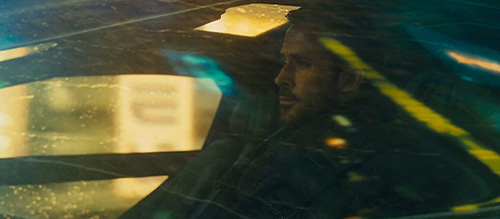
Blade Runner 2049 (2017)
Director: Denis Villeneuve
Screenwriters: Hampton Fancher, Michael Green
Starring: Ryan Gosling, Harrison Ford, Jared Leto, Sylvia Hoeks, Ana De Armas, Dave Bautista, Robin Wright, Mackenzie Davis
“A beautiful, rich and immersive sequel that bucks the typical Hollywood trends”
It has been generally agreed upon by casual fans to the most acclaimed critics that Blade Runner 2049 is one of the best films of the decade; both on a technical and emotional level. The combination of stunning cinematography and intricate direction work seamlessly to elevate the grounded and nuanced performances of lead actors Ryan Gosling and Harrison Ford, and puts this film on a pedestal of must-see big screen experiences. It is a simply marvellous blend of technical skill and emotional resonance that deserves all of the topping of end-of-decade lists that it is bound to receive.
The film is written by Blade Runner’s original writer Hampton Fletcher as well as Logan’s Michael Green who have created a poignant and thought-provoking narrative that wonderfully bucks the industry trend of prioritising action over anything else. The story relishes in the source material’s deep questions surrounding the blur between humanity and machinery, providing both answers and new questions that will leave audiences begging for more. The writers also allow a refreshing sense of ambiguity to flow through the narrative, causing the atmosphere of mystery to be joyously intensified and rendering audiences thrillingly uncertain of character motivations or the narrative’s direction.
The film is masterfully taken by the reins by the confident direction of Denis Villeneuve who is right at home with both the nuance that is found in his earlier films Arrival and Prisoners, as well as the thrilling brutality he presented in Sicario. Villeneuve commands the film with extraordinary grace; following the narrative to multiple gorgeous locations each with their own distinct visual flavour and style. It’s here that Villeneuve once again shines through his love for thematic colour palettes. From the blinding neon in the dirty streets of LA to the saturated orange of the radioactive ruins of San Diego, the film exudes atmosphere and audiences are just as immersed in this fully-realised world as they were in 1977’s Star Wars or 2001’s The Lord of the Rings: The Fellowship of the Ring.
The film’s visuals are only pushed to the highest level by the master of the camera Roger Deakins, who very deservedly won the Academy Award for Best Cinematography for his work on this film. Deakins works seamlessly with Villeneuve and uses a plethora of wide and long shots to encourage the audience to soak up the dystopian surroundings as well as highlight the cognitive dissonance the audience feels when looking at this nightmare of a future. What is also worthy of note is the framing of the few (but intense) action sequences. They are all perfectly shot with all of the action being very easy to follow and the impact of each blow causing a feeling of recoil unseen in much of the modern landscape’s big budget offerings. This makes for a refreshing change from the abundance of shaky-cam shots and quick-cuts found in many modern blockbusters.
Speaking of modern blockbusters, the film continues to buck trends when it comes the acting. Ryan Gosling is able to fully embody his talent for subtlety, utilising slow physical movement and small outbursts of pure emotion; he is able to convincingly convey the inner struggle between android and human that the franchise is founded upon. His performance is only enhanced by the efforts of Harrison Ford who returns after a 35-year hiatus from his role as Rick Deckard. Ford is given a lot more room to work than he was in 2015’s Star Wars: The Force Awakens and it shows. He effectively demonstrates the torture and pain Deckard has been put through and is able to utilise more pause and hesitation in his delivery, showing his own inner conflict regarding certain decisions.
If this is the type of sequel that the industry is moving towards then we should count ourselves lucky. Blade Runner 2049 is a shining example of a follow-up done right with everything that made the original so good – but better alongside creative and thought-provoking new additions. The film is simply an achievement, and everyone involved should be immensely proud.
24/24
Written by Harrison Thorne
You can support Harrison in the following places:
Blog: Home Brewed Reviews
Twitter: @brewed_home

